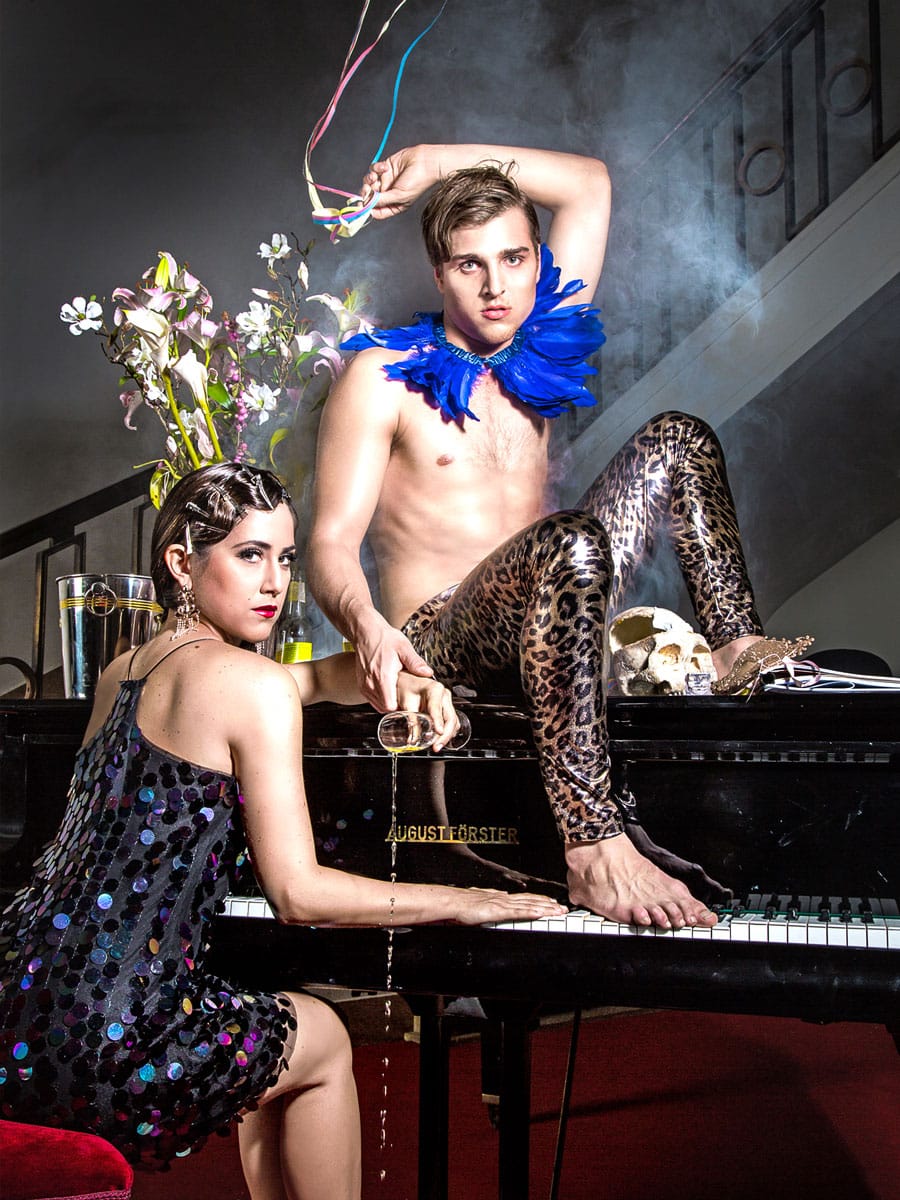
Alles Schwindel
Maxim Gorki Theater, Berlin,
22nd December 2017
5 Stars
When anybody in the UK remembers the name of Mischa Spoliansky, then they only do so in connection with some of the best loved films of the golden years of the British movie industry: ‘The Happiest Days of Your Life’ and ‘Trouble In Store’ are among the many hugely popular comedies he scored, while dramas like ‘Saint Joan’ and adventures like ‘North West Frontier’ and the uncredited ‘King Solomon’s Mines’ are indicative of other genres in which he was equally successful. But no one, I suspect, would recall his earlier career, before he and his family had the good luck to escape the persecution of the Jews in Hitler’s Germany, where he was one of the leading figures in the Weimar Republic’s musical theatre. Indeed, even in Germany, he is only just now being rediscovered, with a handful of productions of his works surfacing here and there, long after his death in London in 1985 (where he scored his last film in 1973), and 80 years after he was a force to be reckoned with.
It is with some significant pleasure, then, that one unearths this astonishing pearl of a musical comedy, first – and last – seen in 1931. The slender plot, a fragile confection of well worn musical comedy tropes involving simple poor folk pretending to be something remarkable and rich, is not something that should detain us long, nor does it. It is, however, a wonderful hangar from which is suspended a veritable deconstruction of pretence and truthfulness in a comedy of manners that could have been written yesterday. For this, our thanks are due to the brilliant team led by house director, Christian Weise, whose guardianship of the revival of this flim-flam transports the experience of its revivification into the realm of serious art in a way that is a real rarity in musical theatre.
The rest of the team support the enterprise with a string of achievements that stimulate the mind as much as they dazzle the senses. The music direction of Jens Dohle is of central importance to this: his arrangements lurch wildly through epochs and styles, rarely lingering long in any one, clearly identifiable mood; somehow, though, he makes sense of it all, and manages to incorporate everything from the Charleston to R’n’B. Similarly eclectic and startling choreographic effects are drummed up by the wild imagination of another regular Weise collaborator, Alan Barnes, a graduate of the Dance Theater of Haarlem, and Arnie Zane and Bill T Jones company. With strikingly expressionistic – and rather contemporary – 2-D designs by another trusted collaborator, Julia Oschatz, with costumes by Adriana Braga Peretzki and Frank Schönwald, and with wonderful lighting by Jens Krüger and superb projections by Oschatz and Jesse Jonas Kracht, this is a production that makes a stunning phyiscal impact upon the senses.
In the midst of all this, the cast are every bit as vivid. On the night I attended, a further level of excitement was provided by the apparently sudden indisposition of the male lead, Jonas Dassler. At the last minute, we were told, he had fallen ill and been replaced by Theo Trebs, who did a frankly incredible job of learning the script, and songs, and dances, and complicated movement, and…. Wait a minute; was that really everything it seemed to be, or was it perhaps all a swindle…. ‘Alles Schwindel’? Who knows. Whatever the actual cause of the rumpus, it lead to some increasingly bizarre and deconstructed interventions, not least from the director himself, who appeared on stage several times to talk us through what was happening, and by oddly intrusive apparitions of the stage crew, the prompt (who was increasingly drawn into the actual stage action), and others who were ever more difficult to identify.
Suffice it to say, Trebs excelled himself, and so did the lovely Vidina Popov, his ostensible love interest. These two characters were the only ones who did not have to play multiple roles. The rest of the ensemble had to represent up to half a dozen or so parts. The peach of these was surely that of Oscar Olivo, who regularly stepped out of character to address the audience and comment upon his background and the latest person or thing he was called upon to be. Much of the script, written in thumping burlesque manner by Marcellus Schiffer with stacks of very funny jokes, relied upon a good understanding of Berlin dialect. This need not be a barrier to it travelling, of course, and in fact English surtitles were helpfully provided to assist wider international comprehension and appreciation. Thus, we found ourselves drawn closely into the wonderfully zany world created by Mareike Bezkirch, Alexander Darkow, Johann Jürgens, Jonathan Kempf, Svenja Liesau, Catherine Stozan, Aram Tafreshian and Mehmet Yilmaz, in which they had to play everything from people to animals to trees and other inanimate objects, in gorgeously pantomimic manner. Dohle himself led things from the onstage double-pit, with Falk Effenberger (keys) and Steffen Illner (bass).
It was all huge fun and I can’t wait to discover more of the work of this lovely maker of musical comedies, who became one of our very own, the inestimable Herr Spoliansky.
